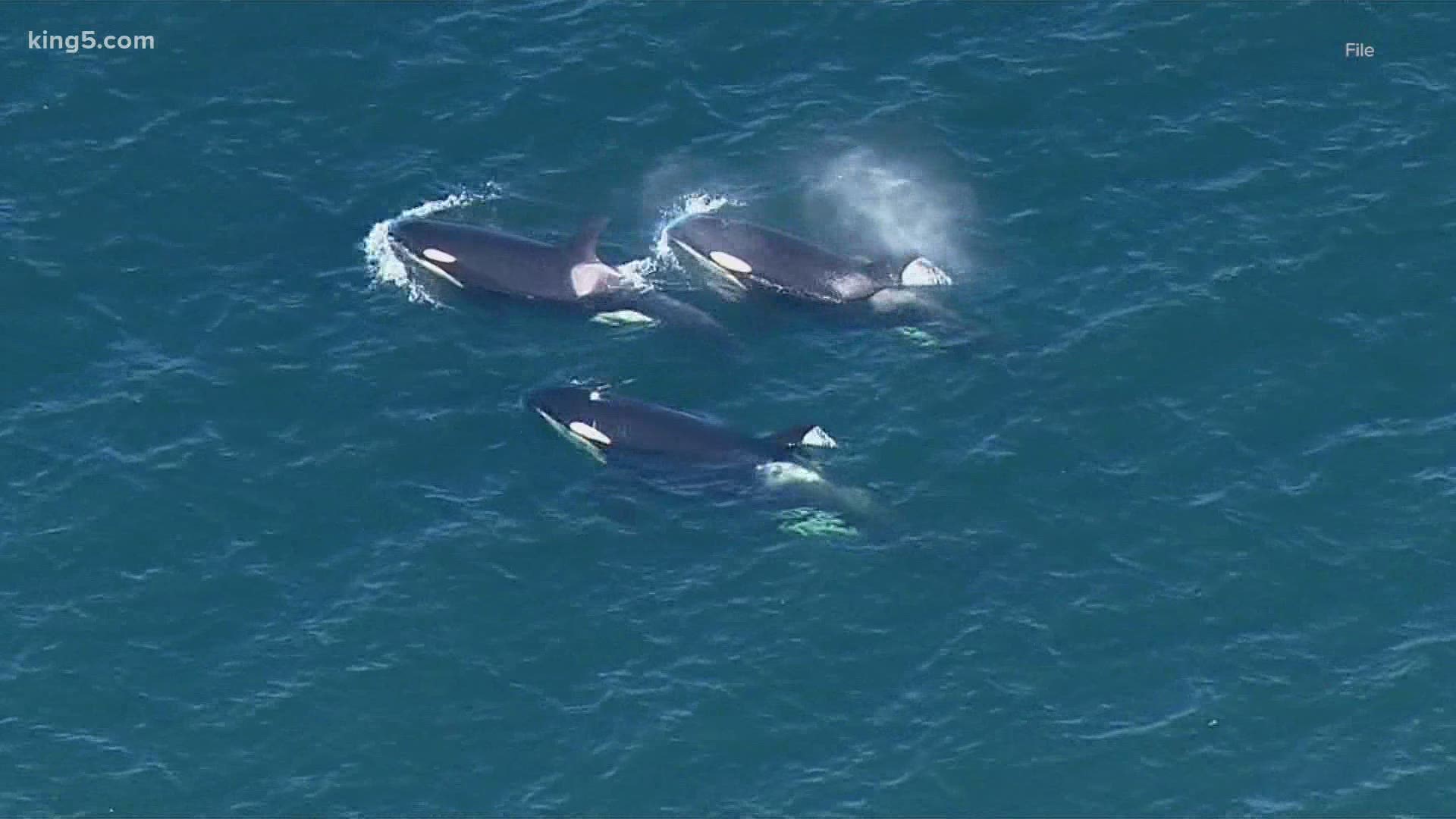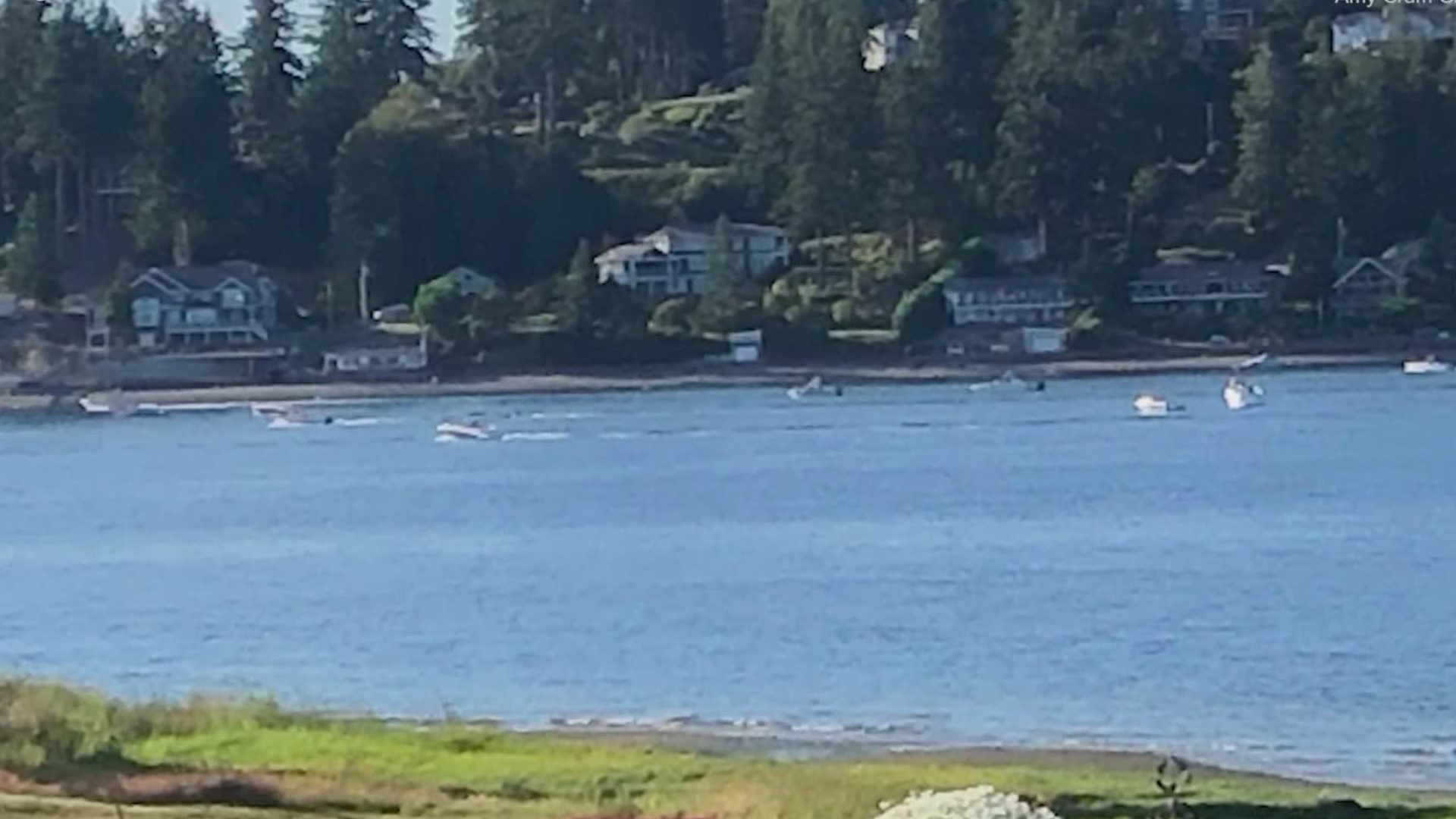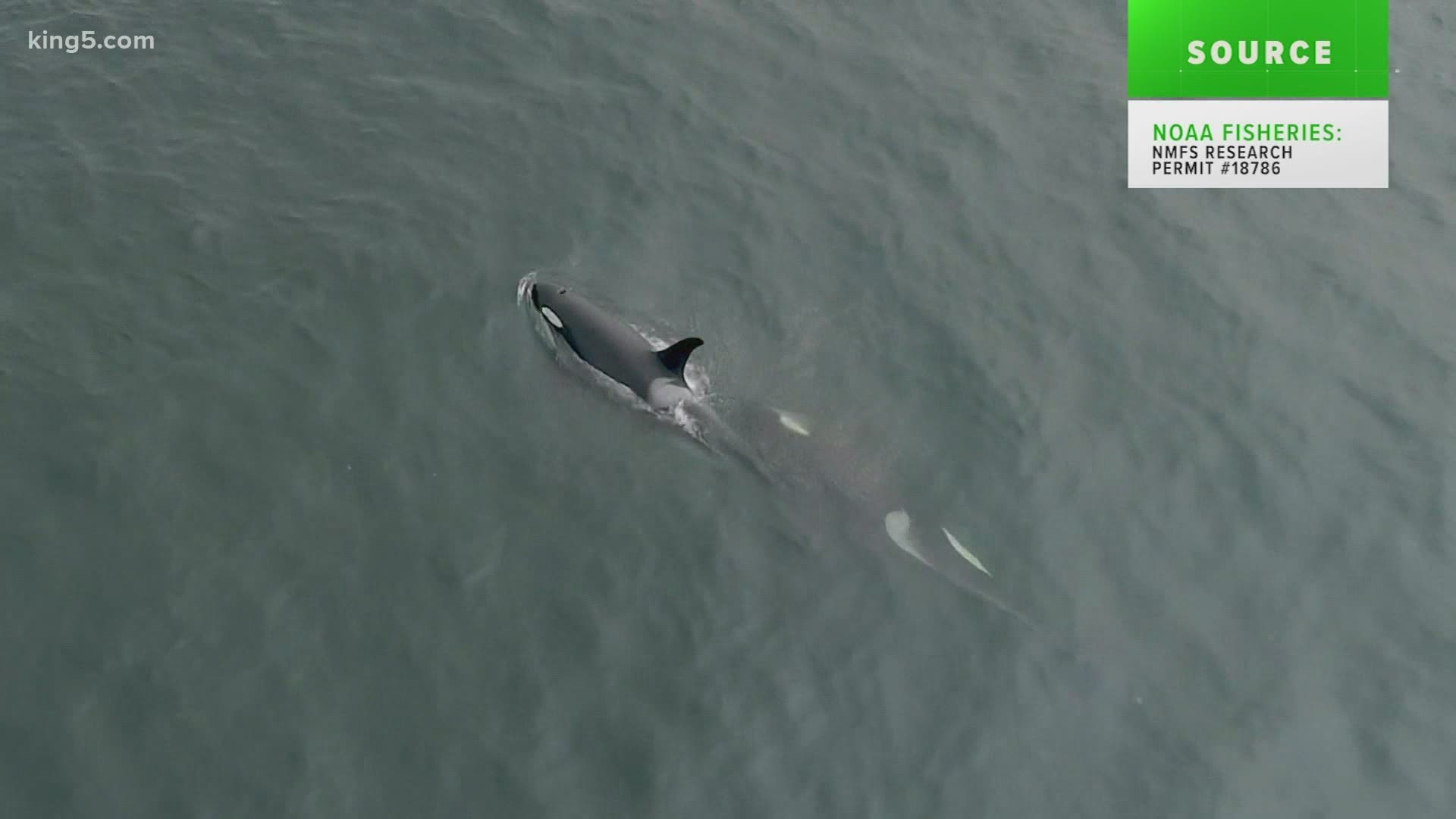MOUNT VERNON, Wash. — The state Fish and Wildlife Commission says new regulations for whale watching in Washington waters will take effect in 2021 in an effort to protect endangered orcas.
According to rules approved last week, commercial whale watching companies can view Southern Resident orcas during two, two-hour periods daily from July through September. The rules restrict the number of commercial vessels to three within a half-mile of a group of whales and include penalties for violations.
Officials say regulating the boats is a starting point, and it's also introducing new permit processes.
The new rules also formally establish the currently-voluntary "no-go" zone on the west side of San Juan Island for motorized commercial whale-watching vessels, but will allow for a 100-yard corridor along the shore for commercial kayak tours, officials said.
There will also be a training, reporting, and compliance monitoring procedure established, including real-time reporting of Southern Resident orca sightings to the Whale Report Alert System. The training and reporting requirements will go into effect May 1, 2021, officials said.
Washington wildlife officials have been stressing the importance of giving the orcas space after several reports over the summer of boaters harassing a pod of transient orcas near Fox Island, though this discussion over whale watching began long before.
The orcas were federally listed as endangered in 2005.
Still, Dr. David Bain of Orca Conservancy feels the new regulations miss the mark. He points to what some call the 'sentinel' role of whale watching boats - making the animals' presence visible to less-attentive boaters, so they can stay away.
He also sees benefit on the education side - showing these animals to people so they feel more connected to them, and willing to help protect them.
"Basically, by closing down whale watching, we're eliminating commercial operators' ability to help the whales," he said.
Not all share that opinion. Critics of the companies say their presence actually creates a scene that brings more private boats to the area looking to catch a glimpse.
Bain feels the state should focus more on salmon recovery (the whales' food source), and reducing pollution making its way into Puget Sound. Beyond that, since orcas use echolocation to hunt, researchers now believe noise from the many vessels in Puget Sound is overwhelming them, and making finding the remaining salmon more difficult.
"I agree we should be giving them quiet, and giving them as much space as possible," he said. "The reality is the commercial whale watching fleet is not the main source of noise."
A report by the Washington State Academy of Sciences prepared for WDFW agreed that whale-watching boats comprise a "small fraction" of the watercraft noise the Southern Residents face, but also found there's not enough evidence to prove the 'sentinel role' of the watchers.
The new regulations do not impact viewing the transient Biggs orcas, or other whales and marine mammals.



